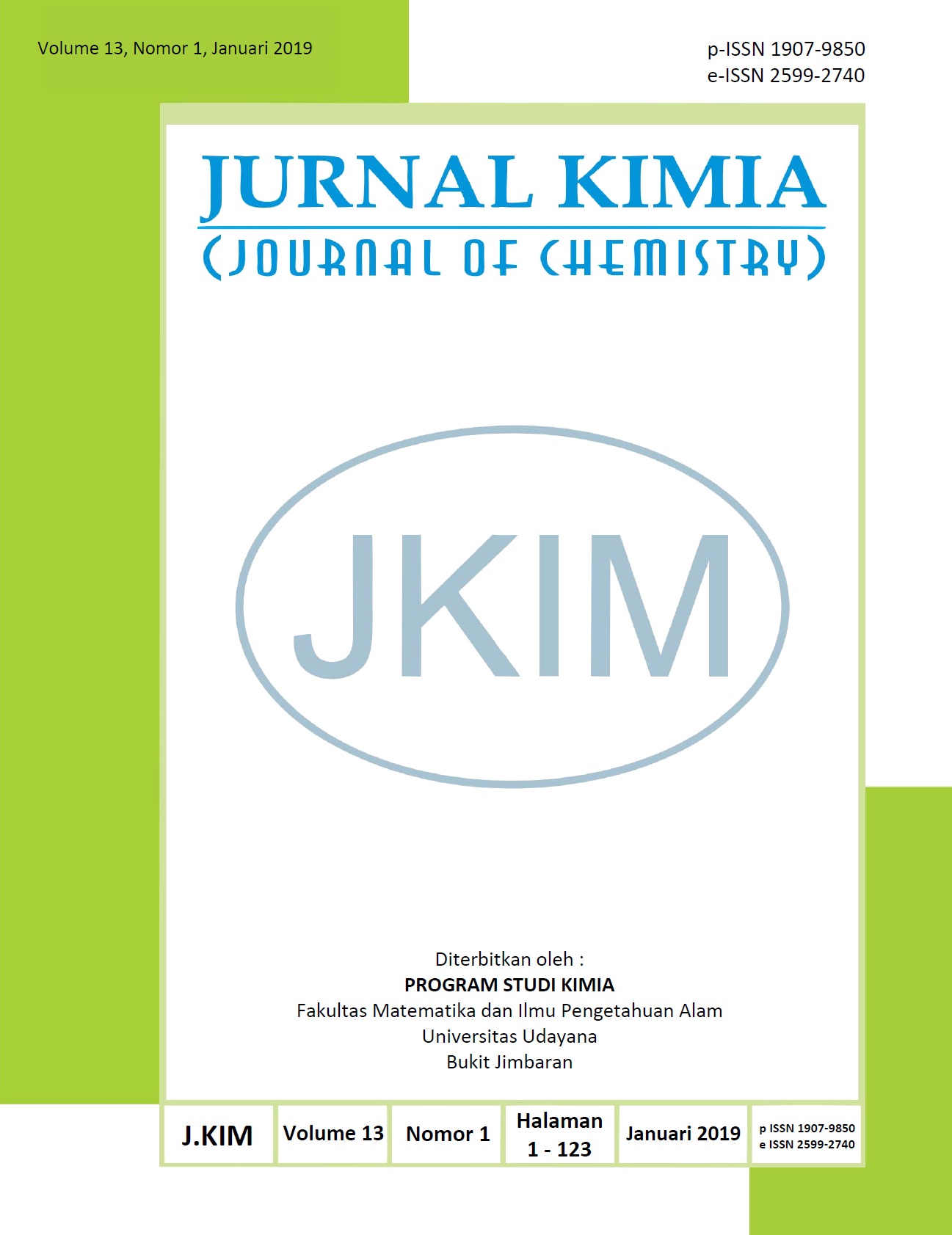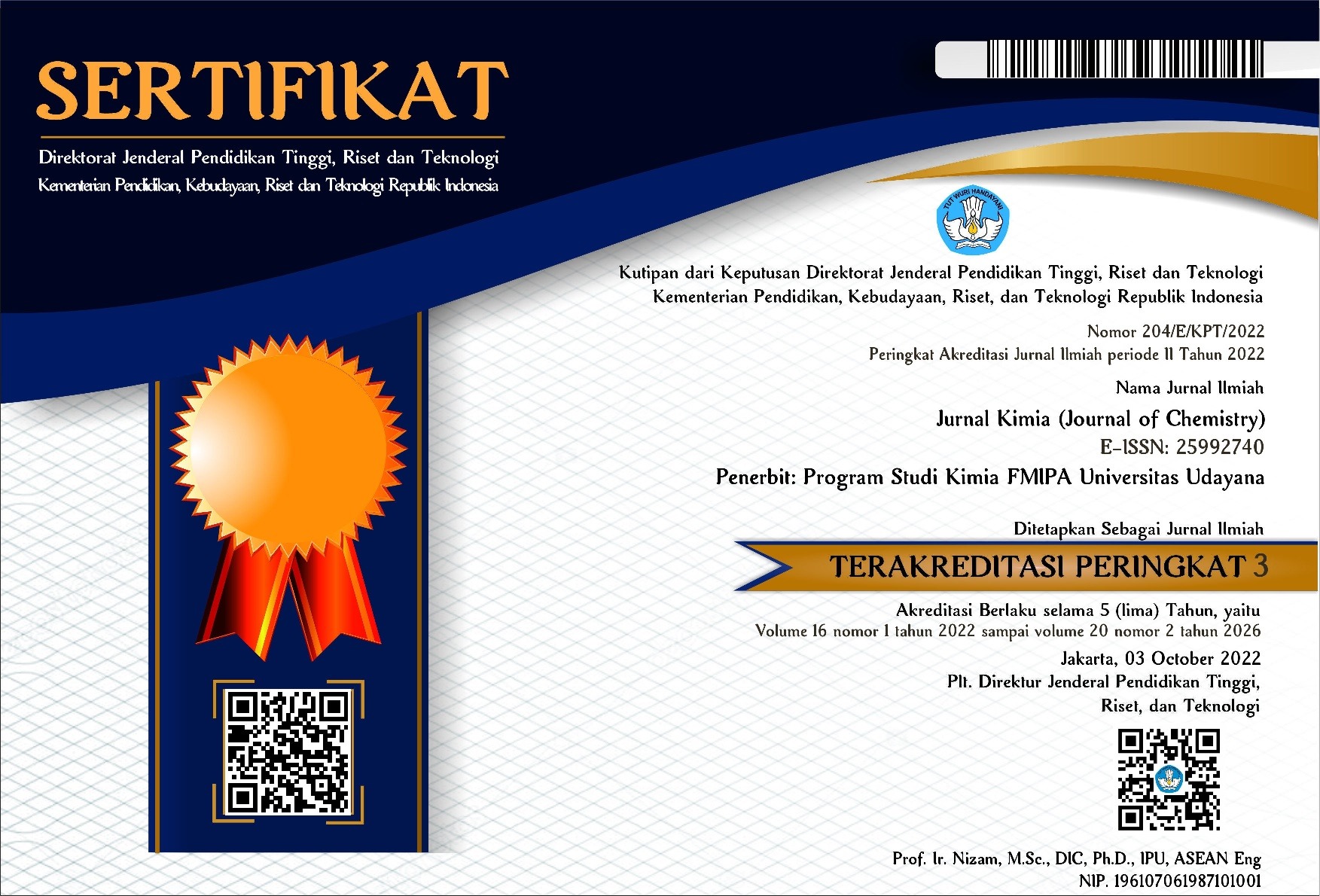TRANSESTERIFIKASI MINYAK BIJI KARET (Hevea brasiliensis) MENGGUNAKAN KATALIS HETEROGEN CANGKANG KEPITING LIMBAH SEAFOOD TERMODIFIKASI K2O
Abstract
The CaO heterogeneous catalysts can be prepared by CaCO3 calcination process, with one source of CaCO3 being a crab shell from seafood waste. The preparation of the heterogeneous catalyst was successfully carried out by modification with KOH using a wet impregnation method at 800oC for 5 hours. The purpose of this research is to determine the physical and chemical characteristics of heterogeneous catalyst of K2O-modified crab shell and to examine the heterogeneous catalyst of K2O-modified shells in converting rubber seed oil into biodiesel. The results showed that the lowest basic alkalinity possessed without modified catalyst (1.0428 mmol g-1) and the highest alkali possessed potassium-modified catalyst (1.8314 mmol g-1). Characterization of specific surface area of ??crab shells without and with modified K2O were relatively the same. The surface morphology of the catalyst without and K2O modified was uniform. The catalyst examination results for conversion of rubber seed oil (Hevea brasiliensis) to biodiesel, the optimum catalyst concentration of 3% and the molar ratio of oil:methanol of 1:9 capable converting to biodiesel with the yield of 91.05%. The content of biodiesel were stearic methyl ester, linoleic methyl ester, linolenic methyl ester, and palmitic methyl ester.
Downloads

This work is licensed under a Creative Commons Attribution 4.0 International License






